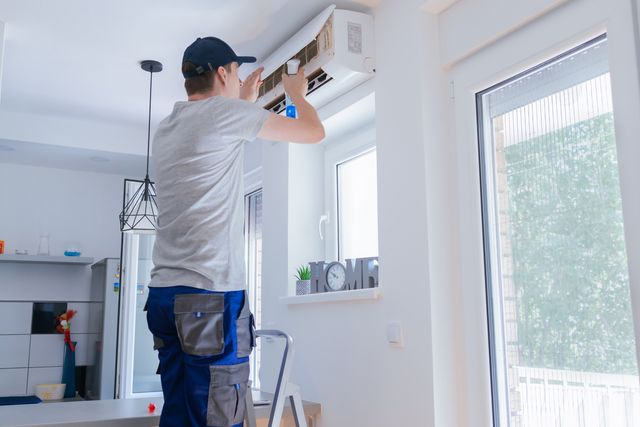As homeowners and business owners, you may have encountered the unpleasant musty smell in air ducts that seems to appear with changing seasons. This smell can be more than just a nuisance; it can indicate underlying issues that need to be addressed to maintain a healthy indoor environment. Understanding the seasonal causes of these odors is essential for keeping your home or office smelling fresh and clean.
In this article, we will explore the common reasons behind this musty smell and provide practical solutions to tackle the issue effectively. By the end, you’ll have a clearer understanding of how to manage these odors and ensure better air quality in your space.

Understanding the Musty Smell
What Causes the Musty Smell?
The musty smell in air ducts often results from mold and mildew growth, which thrive in damp and dark conditions. These microorganisms can develop due to various factors, including humidity, condensation, and poor ventilation. Seasonal changes can exacerbate these conditions, leading to increased odor issues.
Seasonal Triggers for Musty Smells
Different seasons bring different challenges that can contribute to musty smells:
- Spring: As temperatures rise, so does humidity, creating an ideal environment for mold and mildew. Pollen and other allergens can also accumulate in ducts.
- Summer: The use of air conditioning can lead to condensation within ducts, promoting mold growth.
- Fall: Decaying leaves and organic matter can enter air ducts, contributing to a musty odor.
- Winter: Increased use of heating systems can cause dust and debris to burn, creating a distinct smell.
Identifying the Source of the Smell
Inspecting Your HVAC System
To effectively address the musty smell, it’s crucial to identify its source. Start by inspecting your HVAC system, including filters, coils, and ductwork. Look for signs of mold, mildew, and other debris that might be causing the odor.
For a comprehensive guide on mold removal from HVAC systems, check here.
Checking for Moisture and Leaks
Moisture is a primary contributor to mold growth. Inspect your ducts and surrounding areas for leaks or condensation that could be causing moisture buildup. Sealing any leaks and improving drainage can help mitigate this issue.
Solutions for Musty Smells
Regular Maintenance
One of the best ways to prevent musty smells is through regular maintenance of your HVAC system. This includes changing filters, cleaning ducts, and ensuring proper ventilation. For maintenance tips, visit HVAC maintenance tips.
Using Dehumidifiers
Dehumidifiers can help reduce humidity levels, making it harder for mold and mildew to thrive. Placing dehumidifiers near ducts can be particularly effective during humid seasons.
Professional Cleaning Services
If the problem persists, consider hiring professional duct cleaning services. Experts can thoroughly clean your ducts and address any mold issues, ensuring a cleaner and healthier indoor environment. Learn more about solutions at air quality solutions.
Preventive Measures
Proper Ventilation
Ensure that your space is well-ventilated to prevent moisture buildup. This is particularly important in areas like bathrooms and kitchens, where humidity levels can be higher.
Sealing Ducts
Properly sealing your ducts can prevent outside contaminants from entering and contributing to musty smells. It also improves the efficiency of your HVAC system.
Conclusion
Addressing the musty smell in air ducts requires understanding its seasonal causes and taking proactive steps to mitigate them. Regular maintenance, proper ventilation, and professional cleaning services can significantly improve air quality and eliminate unpleasant odors. By following these guidelines, you can ensure a healthier and more pleasant indoor environment for both residential and commercial spaces.

FAQ Section
How often should I clean my air ducts?
It’s recommended to clean your air ducts every 3 to 5 years, but more frequent cleaning may be necessary if you notice persistent odors or have allergies.
Can a musty smell indicate a serious problem?
Yes, a musty smell can indicate mold growth, which can be harmful to health. Addressing it promptly is important to maintain indoor air quality.
Is professional cleaning necessary?
While regular maintenance can be done by homeowners, professional cleaning provides a thorough approach to eliminate mold and improve air quality.
For more insights, check out this [external article](https://www.cooltoday.com/blog/musty-smell-coming-from-central-a-c-vents-heres-why) on musty smells in air ducts.
This article contains affiliate links. We may earn a commission at no extra cost to you.